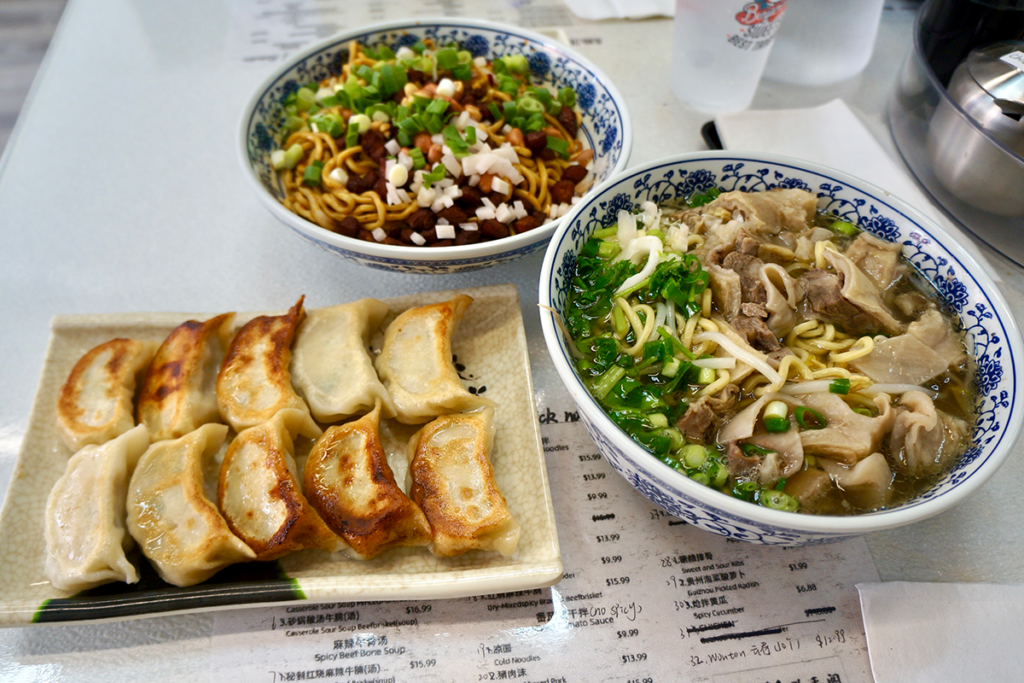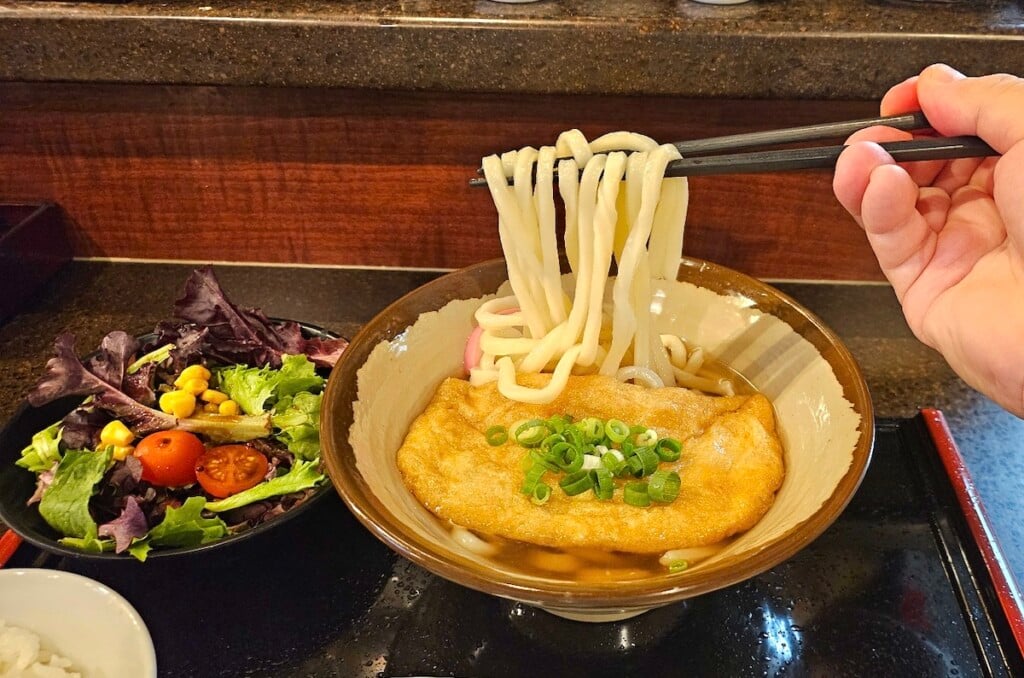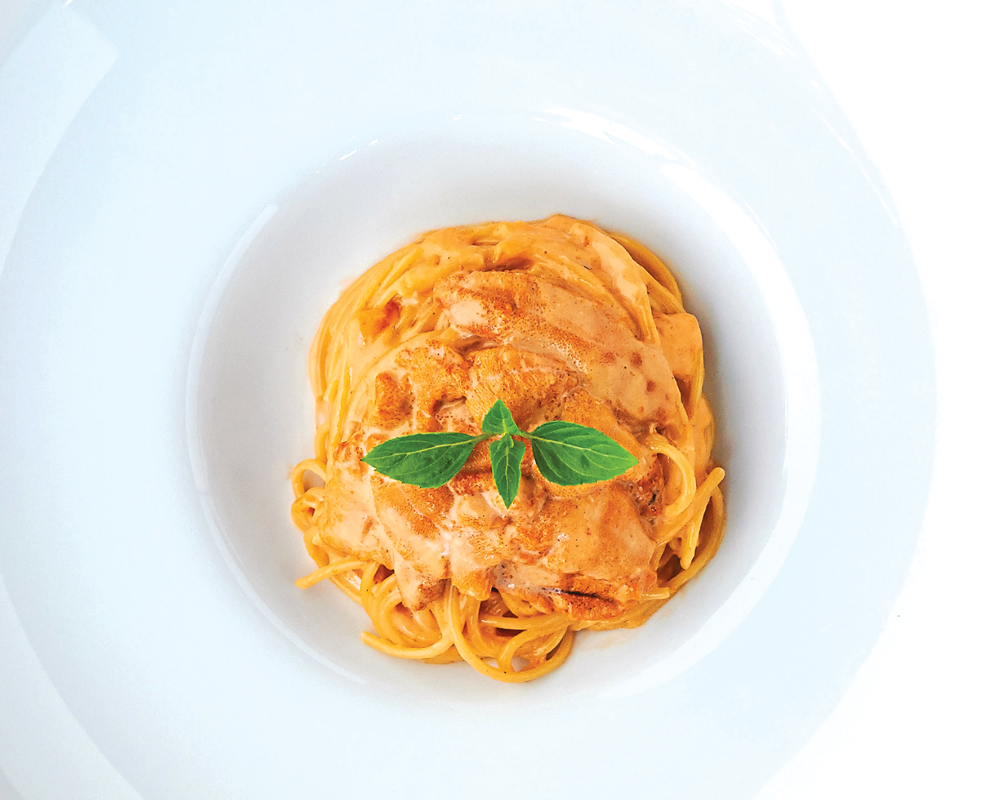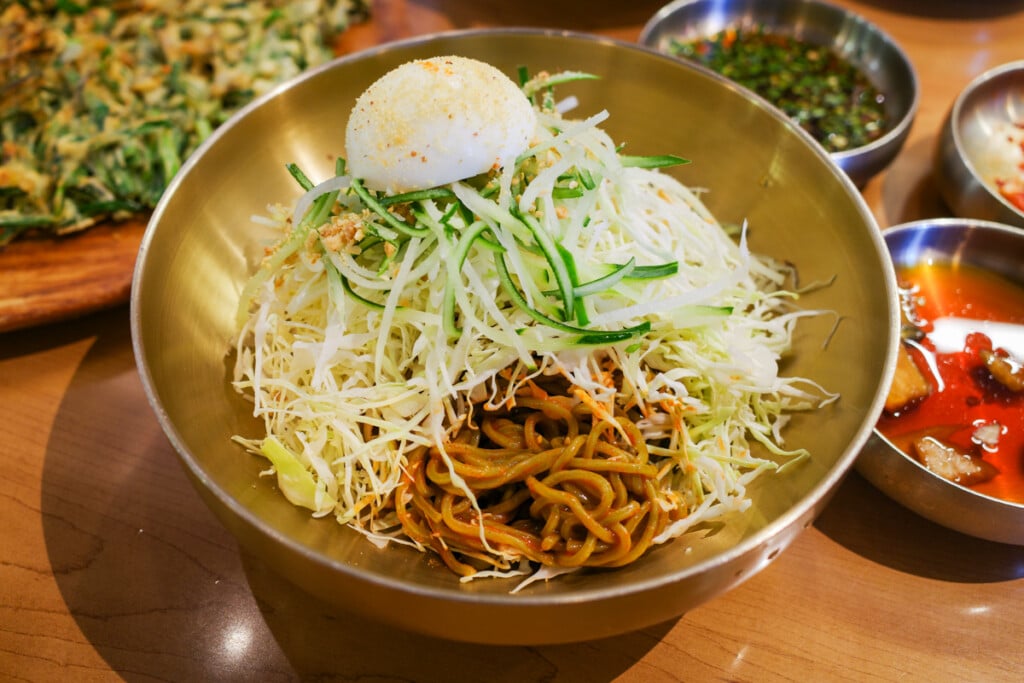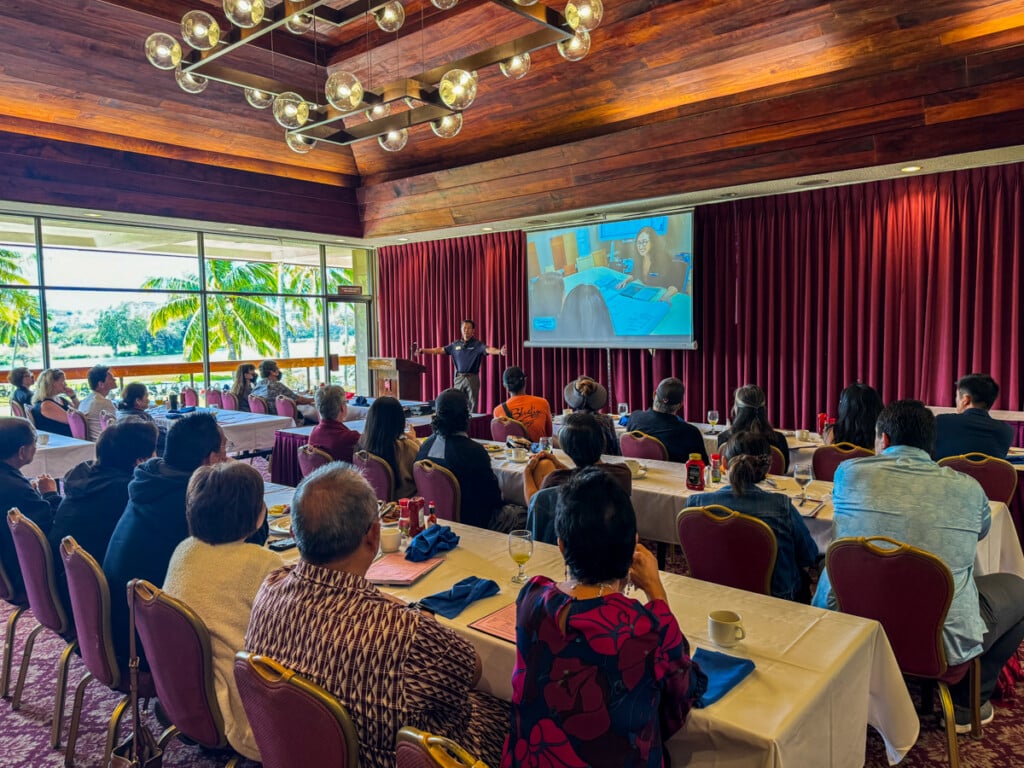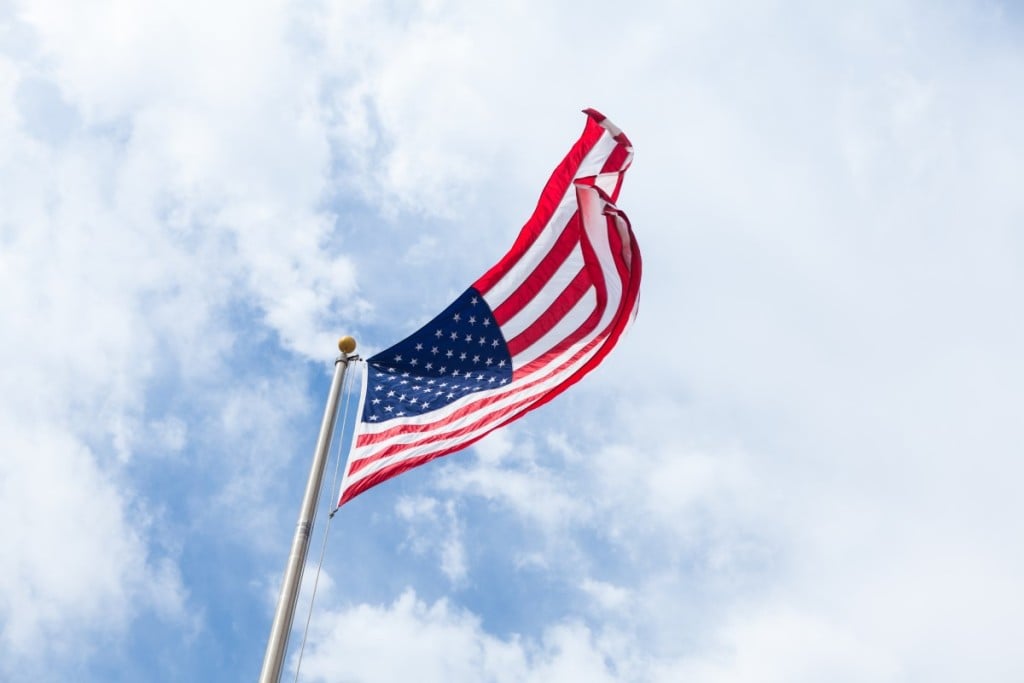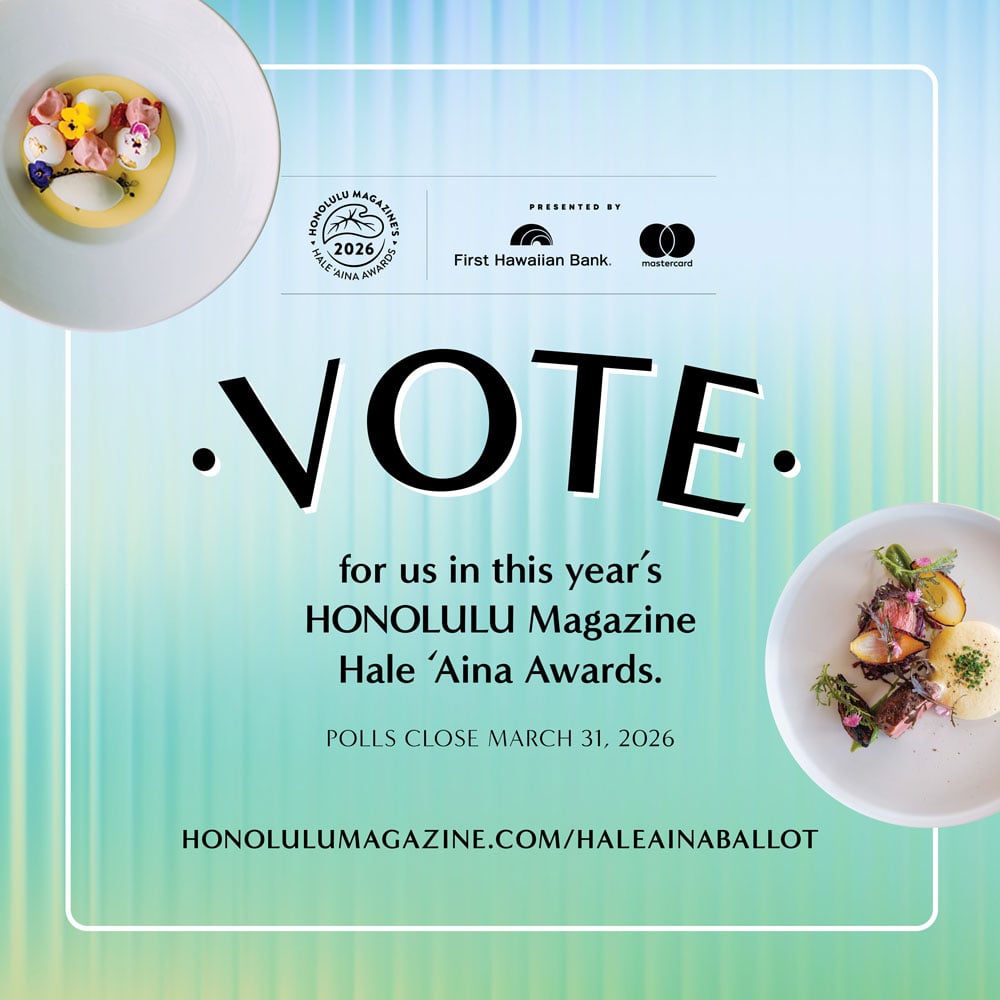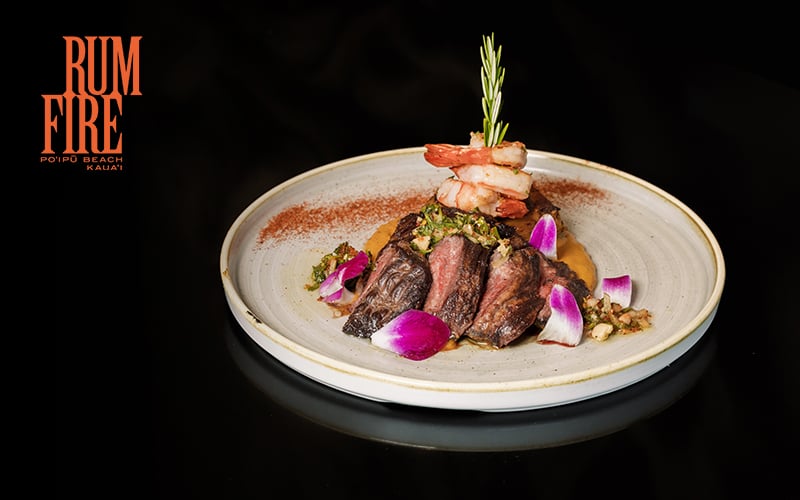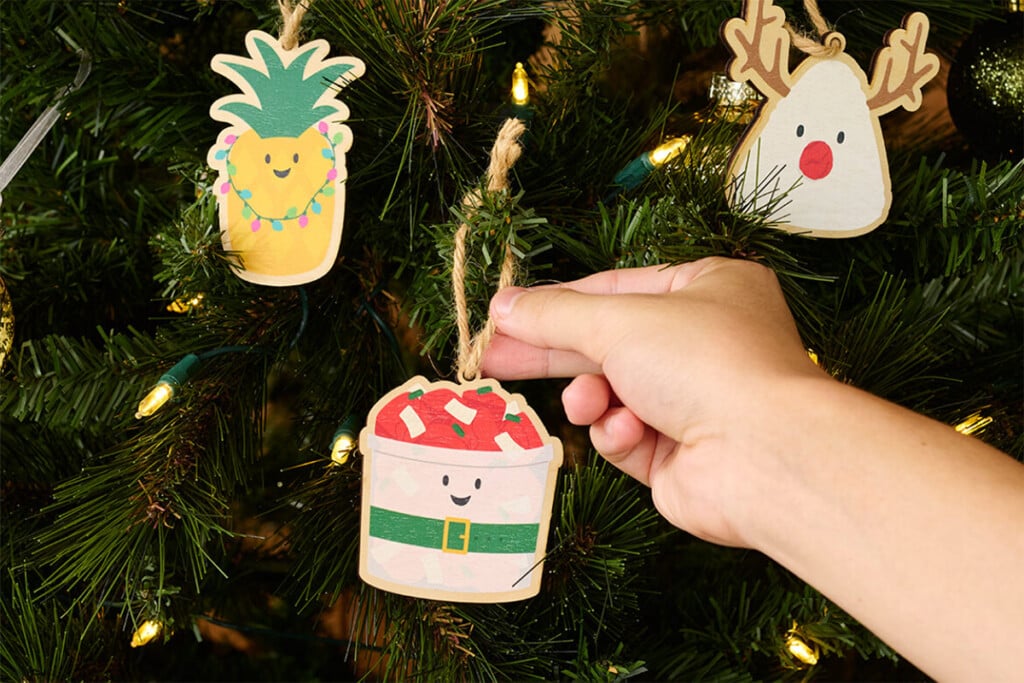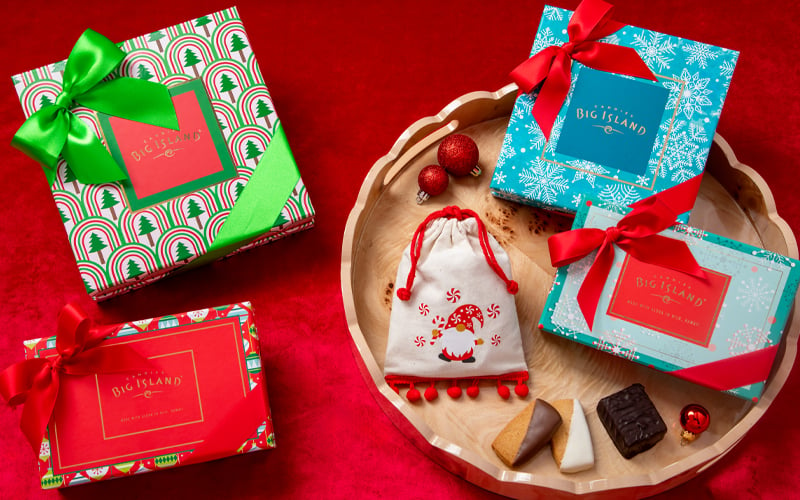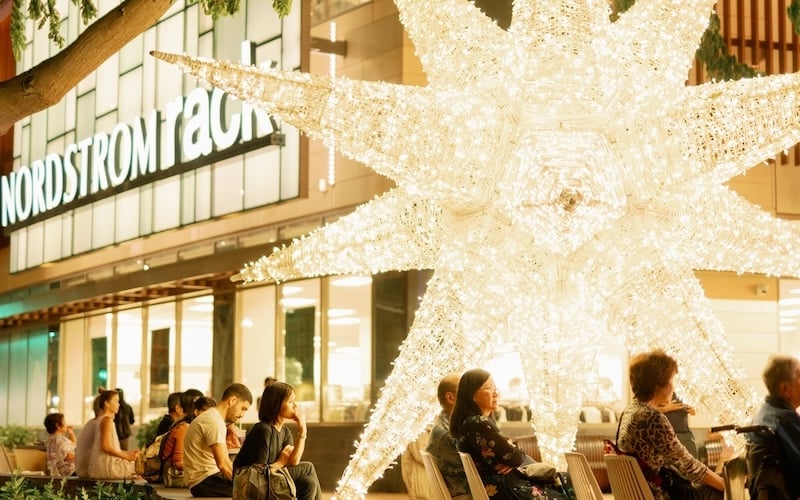Sun Noodle and Adela’s Country Eatery Have Rolled Out Noodles Made From Locally Grown Ingredients
Sun Noodle’s kalo noodles and Adela’s Country Eatery’s ‘ulu and avocado noodles are paving the way for food independence in Hawai‘i.
Committed to supporting Hawai‘i farmers, Sun Noodle president Kenshiro Uki spearheaded the company’s creation of noodles made from locally grown kalo. Efforts got underway in 2021, but it took lots of research and development before the noodles were ready for their big public debut.
That came in April, when the kalo noodles were one of two Sun Noodle products showcased as part of Frolic Hawai‘i’s Ramen Bowl, a weeklong ramen crawl with 10 participating O‘ahu restaurants. (Frolic is HONOLULU’s dining brand.) Eaters said they loved the bounciness of the noodles and the unique tastes of the special kalo ramen dishes crafted for the crawl by four local chefs, says Rachel Murai, Sun Noodle’s marketing associate. “We add a little vinegar inside of the noodles to kind of give it that sour poi taste,” she says.

Photo: Aaron K. Yoshino
Hawai‘i is among the most import-dependent states in the nation, with about 90% of its food shipped in from elsewhere. Murai says Sun Noodle launched the kalo noodles, which consumers can find at ChefZone, to help Hawai‘i become more sustainable. “We want to boost Hawai‘i’s agriculture,” she says.
Adela’s Country Eatery also has gotten into the sustainable noodle business, producing unique house-made noodles made from local ‘ulu and avocado. Richard and Millie Chan opened the Kāne‘ohe restaurant in 2019 and started adding various Hawai‘i-grown ingredients to their noodles as an experiment. It’s since become Richard’s personal mission.
“My goal is for Hawai‘i to be food-independent,” he says. “At least we have to try. … Our part is a small part, but it’s more rewarding than just selling one more plate lunch.”
And so far, it’s working. In May, the restaurant launched noodles made with watercress sourced from fourth-generation Sumida Farm in ‘Aiea and ogo (seaweed) grown at Olakai Farm in Kahuku. Chan says he can’t make enough to meet demand.
“Our goal is to build up Hawai‘i’s food independence,” he says, “one noodle at a time.”
Diane Seo is the editorial director of HONOLULU Magazine.
Catherine Toth Fox is the former editor at large HAWAI‘I Magazine and a contributor to HONOLULU Magazine.
